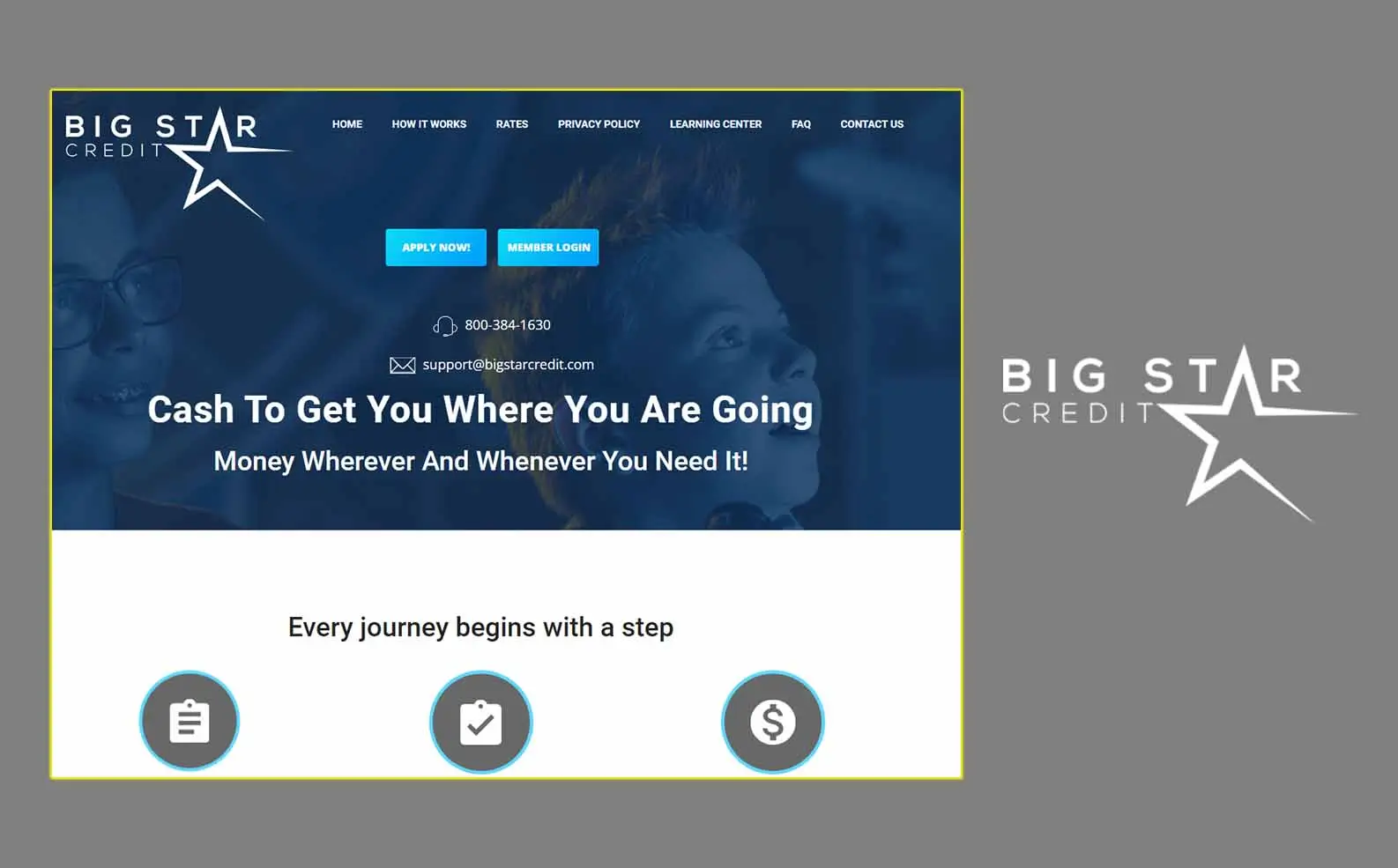As someone navigating the often-complex world of personal finance, you might have come across Big Star Credit. They offer a variety of loan options, and it’s natural to wonder if their services are right for you. This article will delve into 5 crucial aspects of Big Star Credit, empowering you to make an informed decision.

1. Understanding Big Star Credit’s Loan Products
Big Star Credit offers a range of loan products to cater to diverse financial needs. Here’s a breakdown of some common options:
- Personal Loans: These are unsecured loans, meaning you don’t need collateral to qualify. They’re often used for debt consolidation, unexpected expenses, or home improvement projects.
- Installment Loans: Similar to personal loans, these are repaid in fixed monthly installments over a predetermined term. Big Star Credit might offer installment loans for specific purposes like auto repairs or medical bills.
- Title Loans: These secured loans use your vehicle title as collateral. While potentially risky due to the possibility of car repossession upon default, they can offer quick access to cash.
Do Your Research: It’s vital to understand the specific terms and conditions of each Big Star Credit loan product before applying. This includes interest rates, repayment periods, origination fees (a one-time fee charged for processing the loan), and prepayment penalties (a fee charged if you pay off the loan early).
2. Eligibility for Big Star Credit Loans
Understanding your eligibility for Big Star Credit loans is crucial. Here are some general factors they might consider:
- Credit Score: Big Star Credit likely uses your credit score to assess your creditworthiness. A higher score generally translates to better loan terms – lower interest rates and potentially higher loan amounts.
- Income Verification: Proof of stable income demonstrates your ability to repay the loan. Big Star Credit might request pay stubs or tax returns to verify your income.
- Debt-to-Income Ratio (DTI): This ratio compares your monthly debt obligations to your gross monthly income. A lower DTI indicates a better capacity to handle additional debt.
Be Transparent: When applying for a Big Star Credit loan, be prepared to provide accurate information regarding your income, employment, and existing debts. This transparency helps them determine your eligibility and offer suitable loan options.
3. The Cost of Borrowing from Big Star Credit
The cost of borrowing from Big Star Credit involves more than just the interest rate. Here’s a breakdown of potential fees:
- Interest Rate: This is the annual percentage rate you’ll be charged on the borrowed amount. Big Star Credit might offer different interest rates based on your creditworthiness, loan type, and loan amount.
- Origination Fee: This is a one-time fee charged for processing the loan application. Be sure to inquire about the origination fee percentage or a flat fee structure.
- Late Payment Fee: Missing a loan payment can incur late fees. Understand Big Star Credit’s late payment policy and any associated penalties.
- Prepayment Penalty: Some loans might have prepayment penalties if you pay them off before the loan term ends.
Shop Around: Don’t limit yourself to Big Star Credit. Compare interest rates and fees from multiple lenders before making a decision. You might find a better deal elsewhere.
4. Customer Service and Online Reviews of Big Star Credit
Big Star Credit’s customer service plays a crucial role in your borrowing experience. Here’s how to evaluate their support:
- Contact Options: Does Big Star Credit offer multiple ways to contact customer service, such as phone, email, or live chat?
- Availability: Are their customer service representatives available during convenient hours for you?
- Responsiveness: How quickly does Big Star Credit respond to inquiries and address any issues?
Read Online Reviews: While online reviews can be subjective, they offer valuable insights from past and current Big Star Credit customers. Look for recurring themes regarding customer service experiences, loan application processes, and repayment options. Consider these reviews alongside your own research for a well-rounded perspective.
See how you can access your Big Star Credit Account; Big Star Credit Login at Bigstarcredit.com
5. Alternatives to Big Star Credit Loans
Before you commit to a Big Star Credit loan, consider these alternatives:
- Personal Savings: If you have some emergency savings, consider tapping into them before taking out a loan.
- Credit Card Cash Advance: While credit card cash advances often come with high-interest rates, they could be an option for smaller amounts, especially if you can repay them quickly.
- Family or Friend Loan: Borrowing from a trusted friend or family member can be a viable option, but ensure clear terms regarding repayment and interest (if applicable) to avoid straining relationships.
- Government Assistance Programs: Depending on your financial situation, you might qualify for government assistance programs that offer financial aid or hardship grants. Research available programs in your area.
Building Your Credit: Regardless of whether you choose Big Star Credit or an alternative, consider focusing on building your credit score. This opens doors to better loan options and potentially lower interest rates in the future. Here are some tips:
- Make Timely Payments: Paying your bills on time is the single most significant factor influencing your credit score. Consistent on-time payments demonstrate your creditworthiness.
- Maintain a Low Credit Utilization Ratio: This ratio indicates how much credit you’re using compared to your total credit limit. Aim for a utilization ratio below 30% for a positive impact on your score.
- Limit Credit Inquiries: Frequent credit inquiries can slightly lower your score. Only apply for credit when necessary.
Conclusion
Big Star Credit can be a solution for various financial needs, but it’s essential to be an informed borrower. By understanding their loan products, eligibility criteria, and associated costs, you can make an educated decision. Remember to compare rates, explore alternatives, and focus on building your credit score for a brighter financial future.
Here are some additional points to consider:
- Financial Literacy Resources: Educate yourself about personal finance. Utilize free resources available online or through non-profit organizations to gain a deeper understanding of loans, interest rates, and credit scores.
- Debt Consolidation: If you have multiple high-interest debts, Big Star Credit might offer consolidation loans to simplify your repayment process. However, ensure the consolidation loan’s interest rate is lower than your existing debts to achieve true financial benefit.
By following these tips and conducting thorough research, you can leverage Big Star Credit effectively or identify a more suitable financial solution to meet your specific needs.



